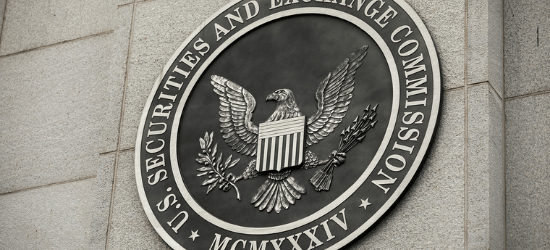Global investors have overwhelmingly urged the SEC to provide corporate disclosure rules on climate. In submissions to the SEC many investors including CalPERS and CalSTRS said the rules should be mandatory.
“At this point, it is clear that the Commission must develop mandatory disclosure rules with line-item reporting which provide issuers with clarity on what is expected by investors on climate risk reporting,” said Marcie Frost, chief executive of CalPERS in its submission.
“For investors navigating the complexity of climate change, it is essential to have detailed scenario-based corporate disclosures regarding the potential impact of both the transition and physical risks to companies’ performance across time to help investors properly evaluate potential return on investment and to make informed comparisons among investment opportunities.”
In its submission CalSTRS called on the SEC to use rulemaking to mandate universal metrics and recognise independent standards to guide industry-specific disclosures and require that from companies of all sizes in all industries.
A study of 2,585 companies by Harvard Business School found that fewer than 20 per cent disclosed all of the data-points considered necessary for environmental impact valuation, making it unreliable for investors to use and adding weight to the argument that voluntary environmental disclosure does not provide sufficient data to evaluate corporate environmental impact.
In March this year acting chair of the SEC Allison Lee, asked staff to evaluate its disclosure rules “with an eye toward facilitating the disclosure of consistent, comparable, and reliable information on climate change”. Many investors have made submissions including CalPERS, CalSTRS, Norges Bank, CPP Investments, Harvard Management Company, San Francisco City and County Employees Retirement System, Colorado PERA, and NYCERS.
CalPERS’ Frost called on the SEC to act quickly saying the current disclosure regime for corporate reporting “falls short of our expectations as investors”.
“For investors, for capital formation and in the public interest, the Commission needs to move swiftly and decisively to provide the rules which will ensure the management and mitigation of a systemic risk,” she said.
The $1.29 trillion Norwegian Sovereign Wealth fund, managed by Norges Bank, owns 1.5 per cent of the world’s listed companies, this includes $399.5 billion invested in listed US equities and $139.9 billion in fixed income in the US.
In its submission Norges Bank said that the scope and quality of disclosure varies enormously. In the US companies provide better disclosures on their approach to climate risk management than on governance, strategy, and climate-related metrics and targets.
“We have assessed companies’ reporting on climate change since 2010. Although an increasing number of companies globally report some climate-related information, the scope and quality of disclosures varies significantly. The data published by companies is often incomplete and/or not comparable,” it said. “Based on our assessments, US companies in the technology, telecommunications and retail sectors have stronger climate-related disclosures compared to firms in the automotive, banking, basic resources, construction, insurance, and oil and gas sectors.”
In Norges’ disclosure assessments 80 per cent of the US companies reported their operational carbon footprint, but less than half of the companies reported emissions related to their value chains.
Investors unanimously said that for sustainability information to support investment decisions, risk management processes and ownership activities it must be consistent and comparable across companies and over time.
Kate Murtagh, chief compliance officer and managing director for sustainable investing at HMC said the current voluntary disclosures are not of a scope, breadth, and quality sufficient for market participants and regulators to fully understand and assess relevant climate risks.
“Since undertaking our net-zero commitment, our focus has been on improving our access to reliable, actionable climate-related data. Such data is currently very limited. Much of the available data is self-reported and unaudited,” she said.
In their submissions investors said they expected companies to disclose their climate plans and to set short-, medium- and long-term emission reduction targets that take into account the goals of the Paris Agreement. This allows investors to assess companies’ readiness for the climate transition. Investors also called for scenario analysis and for companies to assess the sensitivity and resilience of their long-term profitability to different transition and physical climate scenarios.
CPP Investments said that it expects companies to disclose financially relevant, potentially material climate change related factors in order to make informed decisions.
“Climate change remains one of the largest and most challenging investment considerations of our time. Specifically addressing its impacts in our investment activities better positions us to make more informed long-term decisions with regard to profitability and shareholder value, in line with our legislative mandate of maximizing returns without undue risk of loss. We require consistent, comparable and accurate information on climate change-related risks and opportunities that is ultimately decision useful. As such, we expect disclosure of financially relevant, potentially material climate change related factors from our portfolio companies to allow us to better understand, evaluate and assess potential risk and opportunities of these factors on a company’s performance.”
No need to reinvent the wheel
CPP said that when issuers seek input, it indicates its preference for companies to align their reporting with the Value Reporting Foundation (the successor to SASB) and the Task Force on Climate-related Financial Disclosures (TCFD).
These two third-party standard setters were preferred by all investors in their submissions, with a directive from Harvard’s Murtagh for the SEC to not “reinvent the wheel”.
“The Value Reporting Foundation and the TCFD have an important, and necessary, continuing role to play in helping fill in the white space of principles-based climate disclosure rules. The SEC should not reinvent the wheel where an existing voluntary standard or framework already is aligned with the SEC’s mandate,” she said.
Similarly Norges said: “We recommend that companies report financially material sustainability information following the logic of the TCFD and using the SASB industry-specific standards. The Commission could ask companies to use these existing standards for their reporting. Finally, as a global investor, we welcome the ongoing cooperation among regulators and the work of international standard-setters, to ensure comparability of sustainability disclosures at an international level.”
CalPERS also called for the SEC to examine human capital disclosures as part of its work to modernise corporate reporting.
“We are delighted to support the Commission’s work to modernize corporate reporting which should include moving the market forward with respect to human capital disclosures including a substantially greater focus on diversity and the addition of certain identified metrics. Comprehensive, high-quality, consistent, and comparable disclosures of climate risk, charitable and political expenditures, human capital management, and board diversity are critical to the long-term success of capital markets.”



